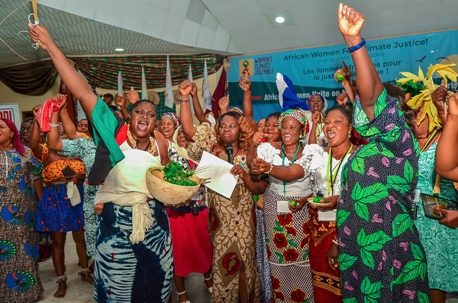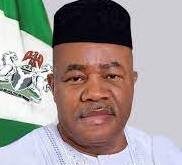By Paul Williams, Port Harcourt
Women from countries in West and Central Africa have gathered in the city of Port Harcourt, Nigeria, to forge a common front against the negative impact of climate change on the continent.
Coming from Guinea Conakry, Côte d’lvoire, Cameroon, Senegal, Mali, Burkina Faso,
Sierra Leone, Liberia, Democratic Republic of the Congo and host, Nigeria, the women gathered under the banner of the Women’s Climate Assembly, with the theme: ‘African Women Unite on the Frontlines of Climate Crisis.’
The assembly, which kicked off on Monday in Port Harcourt, comes as three core Niger Delta states – Bayelsa, Rivers and Delta – are facing heavy flooding in communities bordering the river, with thousands reportedly displaced.
Executive director of Kebetkache Women Development & Resource Centre, Chief Emem Okon, whose NGO is co-organizing the event with WoMin African Alliance, said while world leaders are billed to gather in Egypt in November to discuss climate change issues, “we are gathered here as African women to discuss solutions that will work for women in Africa.
“We are going to share experiences and stories of how women have been impacted by climate change,” she said, noting that women are more impacted by the climate crisis, as they have to look for food, for water and take care of the elderly and children in the family.
A release from the organisers of the African Women’s Climate Assembly, Kebetkache and WoMin, noted that Nigeria is suffering its “worst flooding in a decade, forcing 1.4 million people from their homes,” noting that Sub-Saharan Africa is carrying the extreme costs of a climate crisis not of its making.
“Africa has contributed less than 3% of all carbon emissions since 1880 but is warming faster than any other region in the world, while the world’s climate has warmed by a global average of 1.1 degrees celsius, the average for Africa sis at around 1.5 degrees.
“Heat waves, droughts, wildfires, and cyclones, as well as locust plagues, flooding and rising sea levels affecting coastal communities are commonplace. By 2050, as many as 86 million Africans will be forced to migrate within their own countries due to climate change,” the release said, noting that African women face the brunt of climate impacts.
The release further described the assembly holding in Port Harcourt, Nigeria, as “an opportunity to unity women-led struggles against destructive large scale ‘development’ projects and false solutions to the climate crisis and a platform for women to spotlight real development solutions, and their demands/visions for real climate justice.
“Women and their communities in the Niger Delta have carried the costs of ill-health, violence, hunger, and displacement while the world’s most powerful corporations and elites enjoyed the profits.”
Stressing the impact of oil extraction activities in the Niger Delta, Kebetkache’s Chief Emem Okon said since 1956 when oil extraction activities began in Nigeria, “communities have experienced oil spillage in water bodies, farmlands,” as well as the “flaring of poisonous and toxic gases into the atmosphere on a daily basis.”
This situation, she said, has had severe negative impact on women in the region, with a rising rate of early menopause, infertility and other such ailments.
One of the leaders of the delegation from Burkina Faso, Sakina Ouedraogo, who spoke through a Burkina-based translator, Zondi Toussaint, said issues of climate change cuts across countries in Africa, with her country experiencing the worst heat waves and temperature rises in years.
She said the women’s assembly affords women in Africa the opportunity to “come together first, and then carry the message, loud and clear, on behalf of the continent, that enough is enough.
 PH Mundial – Port Harcourt Online Newspaper News Across The Region
PH Mundial – Port Harcourt Online Newspaper News Across The Region




